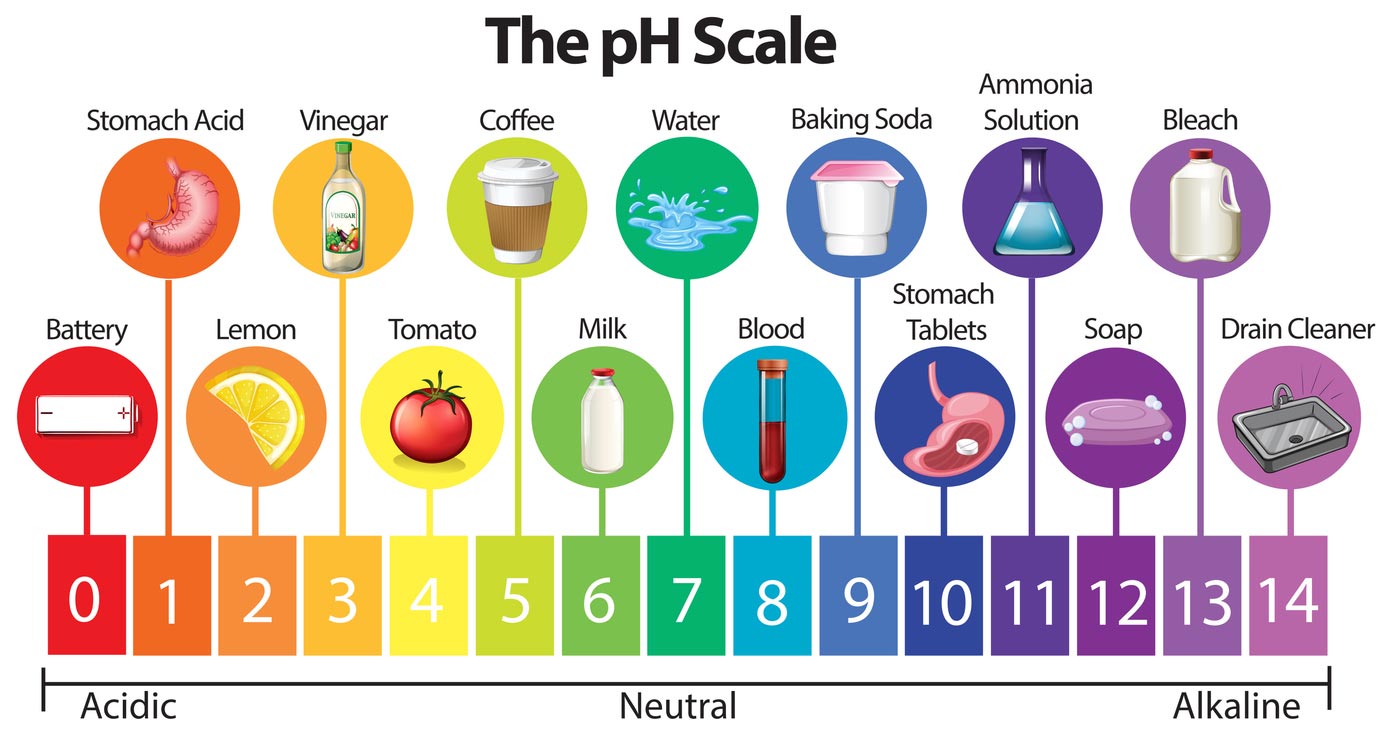
The word “vinegar” comes from the French words vin and aigre, which translate to “sour wine.”
That’s a pretty accurate description if you’ve ever tasted or even taken a whiff of vinegar.
Vinegar is a fermented liquid composed of acetic acid and water, made from almost any carbohydrate source that can undergo fermentation. The common sources are grapes and apples. But you can also find malt vinegar made from malted oats or barley, white vinegar made from industrial grain alcohol (the grain that’s used is typically corn, so go organic if you want to steer clear of GMOs), and you can also find vinegar made from fruit, rice, or beer. The yeast in the carbohydrate ferments the natural food sugars to alcohol. And then, acetic acid bacteria — Acetobacter — converts that alcohol to acetic acid.
The fermentation process can either be fast or slow. For quick methods, oxidation of the liquid occurs with agitation. And the bacteria culture is submerged into it. Traditional wine vinegars typically use a slow method. And the fermentation process can take weeks to months. Over this prolonged period, a non-toxic slime made of yeast and acetic acid bacteria (called Mother of Vinegar) arises. Different types of vinegar ferment for different lengths of time, which determines their flavor. At the extreme end, some balsamic vinegars can ferment for up to 25 years and cost more than many fine wines.
Vinegar Health Benefits

Vinegar has a wide variety of uses in treating different conditions and symptoms throughout history, but scientific evidence has not yet validated vinegar as an effective treatment for most diseases. Still, some animal and human studies have found that vinegar does have promising health benefits that warrant further exploration. Below are some of the most popular health claims associated with vinegar — and what the research says about them.
1. May help reduce the risk of heart disease.
Some animal studies show the ability of vinegar to lower high blood pressure — a risk factor for heart disease — but its effect on humans isn’t known. However, a 1999 study of 76,283 women, tracked over ten years, found that those who ate oil-and-vinegar salad dressing at least five to six times per week had a lower risk for developing fatal heart disease. Researchers suggested this was due to the ALA or alpha-linolenic acid (an omega-3 fatty acid) content of the dressings. But the vinegar-consuming group experienced more heart protection than those who ate mayonnaise-based dressings, which also contain ALA. So it’s entirely possible that the vinegar might have been an important part of the outcome.
2. May have antitumor activity.
Vinegar has demonstrated the ability to cause human leukemia cells to die and inhibit cancer cell growth in other studies. Animal studies show that vinegar added to drinking water has a protective effect against rats developing azoxymethane-induced colon cancer. (In case you’re wondering, azoxymethane is a chemical whose main use by humans is to induce cancer in some very unfortunate rats and mice so humans can study cancer treatment and prevention. Yes, that’s a thing.) One likely reason for this is that vinegar is a source of polyphenols, which are plant compounds designed to defend against oxidative stress that can damage cells and lead to diseases like cancer. Still, more long-term population-based research is needed, as epidemiologic studies have shown mixed results.
3. May help regulate blood sugar.
Vinegar appears to have an antihyperglycemic effect in people by improving insulin response to sugar intake. And this effect is even more significant among people with insulin resistance. A 2004 study found that consuming a vinegar test drink that included 20 grams of vinegar before a carbohydrate-rich meal reduced post-meal blood sugar by 64% compared to a placebo.
4. May support healthy weight loss.
Some people report that consuming vinegar increases feelings of satiety, which may help prevent overeating that can lead to unwanted weight gain. In a small 2005 study published in the European Journal of Clinical Nutrition, researchers gave 12 healthy participants identical serving sizes of three kinds of vinegars with different concentrations of acetic acid (18, 23 and 28 mmol, respectively) with a 50 gram serving of white bread. Then, the researchers assessed their satiety and post-meal glucose and insulin responses. They found that consuming bread alone — the placebo — had the lowest impact on satiety. And the higher the acetic acid content of the vinegar, the fuller and more satiated the participants felt. In another study, two tablespoons of apple cider vinegar, consumed daily for three months, helped overweight adults lose an average of two to four pounds.
5. May have antimicrobial effects.
Vinegar may help fight off harmful germs. In a 2018 study published in Scientific Reports, researchers examined the antimicrobial activity of apple cider vinegar (ACV) against E. coli, S. aureus, and C. albicans. These microbes can trigger a dangerous and sometimes fatal reaction of the human immune system known as a cytokine storm. Put simply, a cytokine storm is basically such an immune overreaction that the system more or less goes haywire and can’t reset itself. The researchers found vinegar downregulated the inflammatory cytokines in a dose-dependent fashion (the less diluted the ACV, the stronger the effect). Their conclusion was that apple cider vinegar could have potential applications for acute infections and for autoimmune-induced immune dysregulation, though more research is still necessary.
6. Other Health Benefits
Other potential (though not necessarily confirmed) health benefits of consuming vinegar, especially apple cider vinegar, include using it to fight colds and other viruses, alleviating symptoms of acid reflux, supporting digestive health, and having a natural detoxification effect on the liver. It might also help with hormonal regulation. One three-month study found that women with polycystic ovary syndrome who drank one tablespoon of apple cider vinegar with about seven ounces of water immediately after dinner experienced more regular periods and improved hormone levels.
Side Effects and Risks of Consuming Vinegar

While vinegar offers a number of potential health benefits when used in moderate amounts, risks do exist. And these risks are largely dependent on individual factors and uses.
Some potential risks of consuming vinegar can include:
- Corrosive and inflammatory damage to your esophagus if you drink it straight and undiluted. Keep vinegar away from children as it’s a potentially caustic substance.
- Damage to the enamel on your teeth due to its high acidity. Early signs of enamel erosion may include increased sensitivity to sweets and hot or cold temperatures. Some people suggest that following vinegar consumption swish pure water in your mouth. Then, take some xylitol mints to help create a more alkaline oral environment. Furthermore, consuming vinegar as a component of a meal is likely to have a less damaging effect on enamel than vinegar consumed alone.
- Reduced potassium levels in your body, which can contribute to osteoporosis or weakened bones. However, vinegar-induced bone loss has only been documented in tandem with heavy, long-term use. In one such case, a woman consumed an average of a cup of 5% vinegar a day for around six years.
- Lowered blood sugar levels. People with diabetes should be especially vigilant if using vinegar to make sure their blood sugar doesn’t drop too low. This antihyperglycemic effect can be a double-edged sword for diabetics, both reducing their need for insulin but also potentially putting them in danger of hypoglycemia.
- Stomach discomfort or digestive burning sensations, especially among people with existing stomach problems like ulcers or other digestive conditions. The acidity of vinegar may cause feelings of indigestion or nausea, especially if it isn’t sufficiently diluted.
- Histamine-related reactions among people with histamine intolerance or sensitivities because histamine can result from the vinegar fermentation process.





Комментариев нет:
Отправить комментарий